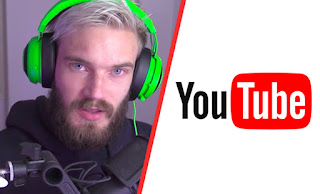The very moment a person chooses to create a social media account, they are out there-- quite literally dumped in the entrance of a vast and endless pool of internet activity and exposure. Every social platform puts the user on their own virtual stage that they can say and put whatever they want into the world. And really, there is no limit in what that content can persist of (legally speaking, of course) or how users get ahold of it.
In terms of how to broadcasting through these platforms, there is a very obvious split of users who choose to publicly show every detail of their lives versus those who choose to be more private. I happen to be one of the later category as I consider myself extremely exclusive in consideration of my personal life and what I choose to share with others (which is usually very little to none) across various platforms. Before starting this class, I only had Facebook (for family purposes) and Instagram (as my major social networking platform for connecting with friends and personal areas of interests). That isn't to say that I don't use social media because I do. Alot, actually. Generally speaking, from the moment I wake up to the moment I go to sleep, I am constantly engaging with various forms of media. I may not post frequently compared to others, but I pay attention to what my network of friends and family make public.
Therefore, after reading the pieces that explained how some individuals choose to publically share their emotions on more difficult experiences-- for instance the loss of a loved one (Scott Simon's Goodbye To His Mother and Facebook Memorials) and Youtube breakup videos (ex: Liza Koshy & David Dobrik)-- I found it quite mind boggling that some individuals could be comfortable enough to share these experiences with a public audience instead of keeping them private.
But it isn't just a handful of individuals that have turned towards a more public online lifestyle. MILLIONS of people engage in this media frenzy of showing their lives off on a daily basis. The amount of vloggers has skyrocketed in the last handful of years and strangely enough, the most successful of them are household names. Literally what young kid doesn't know who Logan and Jake Paul are (**eyeroll**)?
I find this fascinating in a kind of strange way because they essentially get famous for broadcasting their lifestyles to the world and that there are people out there who care enough to watch other people's lives in such a meticulous, devoted way. There is something obviously captivating to media users when they get to watch and see the lifestyle of others on full display. A prime example of this can easily be seen with the reality show Keeping Up with the Kardashians.
Most people may dislike the family but how else can you explain a whopping 15 seasons or that two of the sisters are on Instagram's Top 10 Followers List. This trend isn't only surrounding the channels of television because even the Youtube account with the most subscribers happens to be a vlogger named PewDiePie with a staggering 87.97 million accounts linked directly to his profile.
But is the material authentic?? Surely there is something that is keeping people hooked and when Khloe Kardashian shares her latest pic of a shake that guarantees a flat tummy or when Liza and David broke the internet by announcing their breakup, it can be hard to distinguish between the genuity of their messages to their audiences.
But really, I think it's about the person's preference in regards to finding online material authentic or not. There are some who can find the ability to connect with strangers just because they see a tummy ad and a closet full of shoes, and there are also some who find it difficult and pointless to dwell on strangers. It is an individualistic choice to follow those that you find interesting enough to do so whether or not they act more publically or private online.
Humpreys, L. (2018). The Qualified Self: Social Media and the Accounting of Everyday Life. MIT Press.







No comments:
Post a Comment